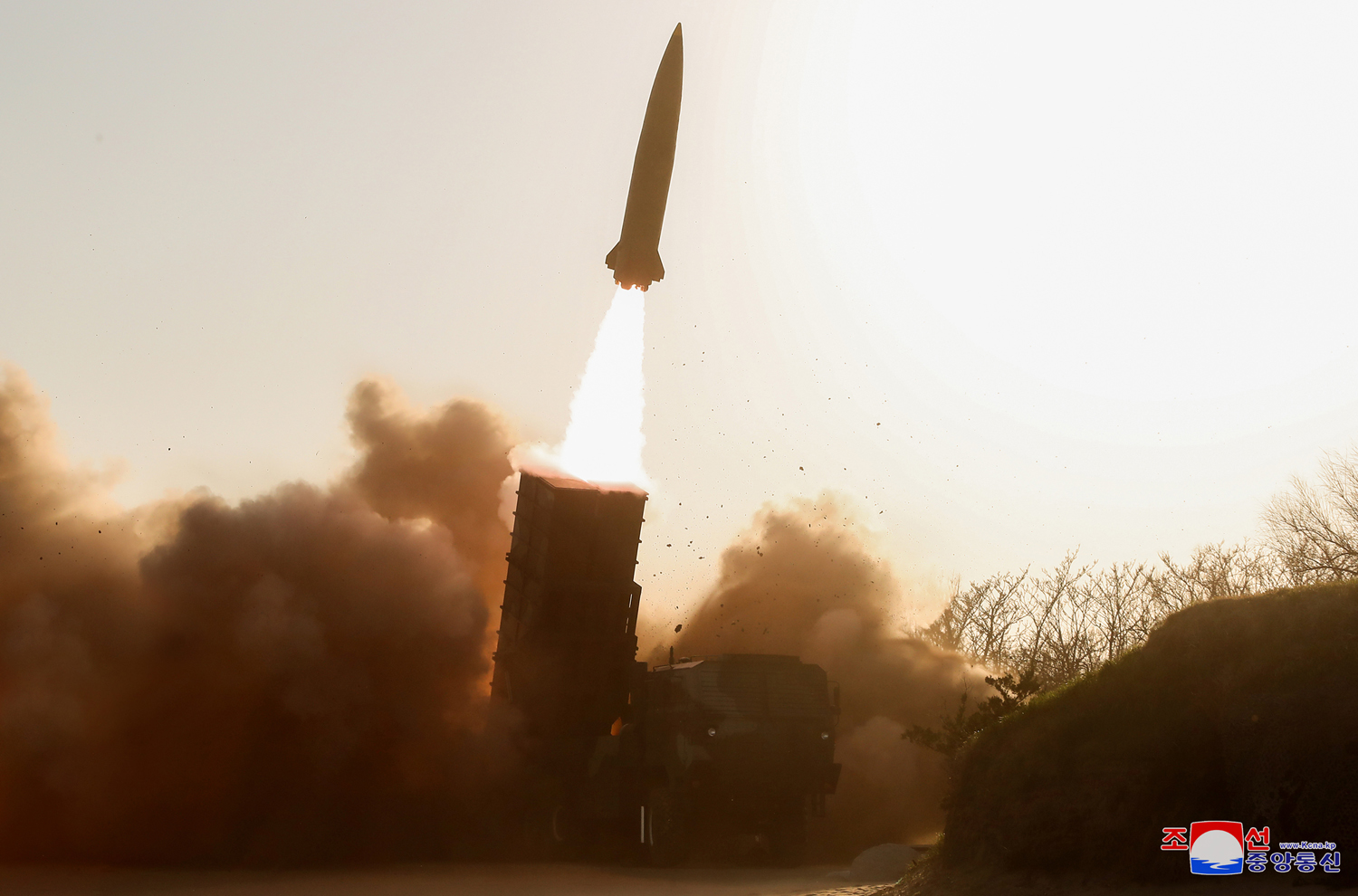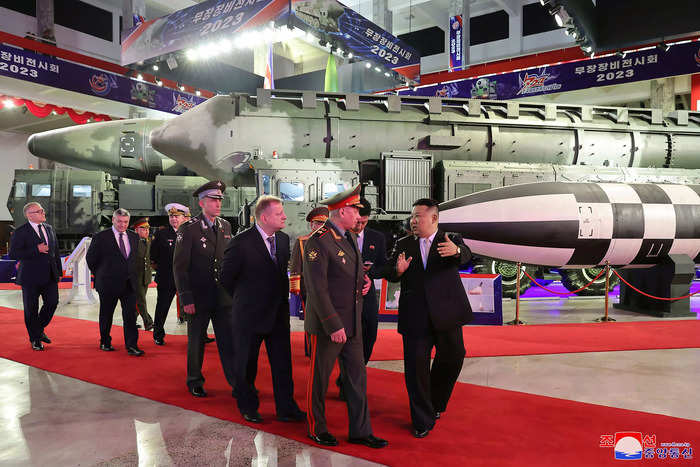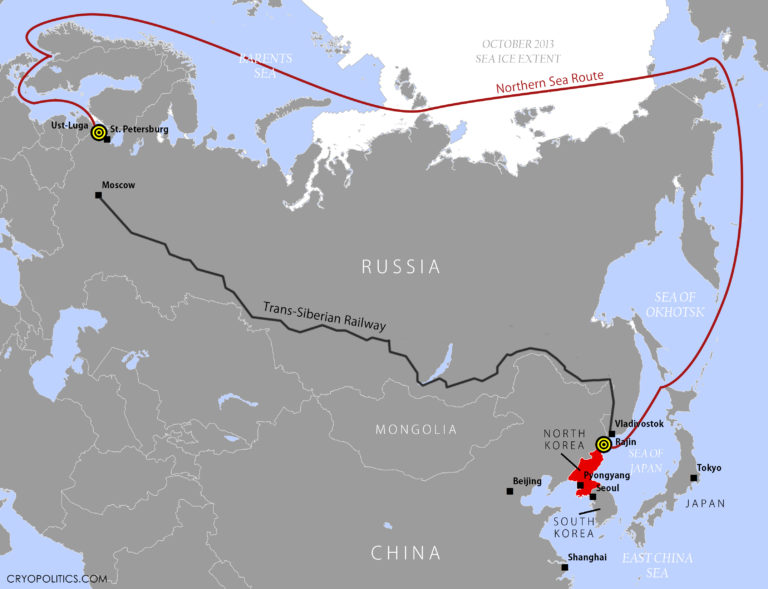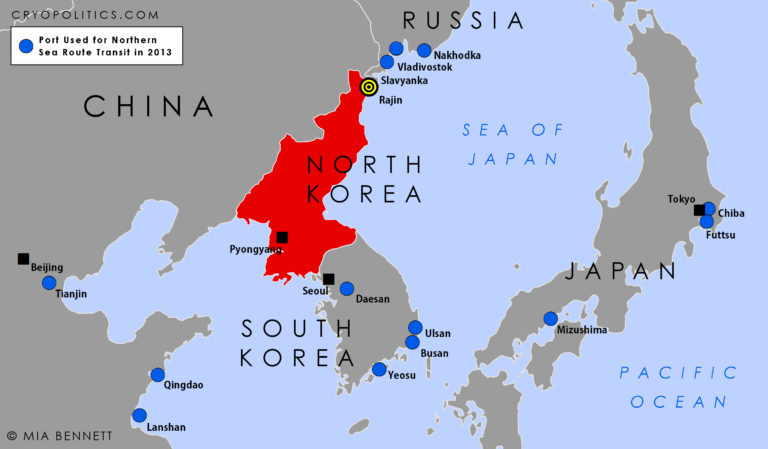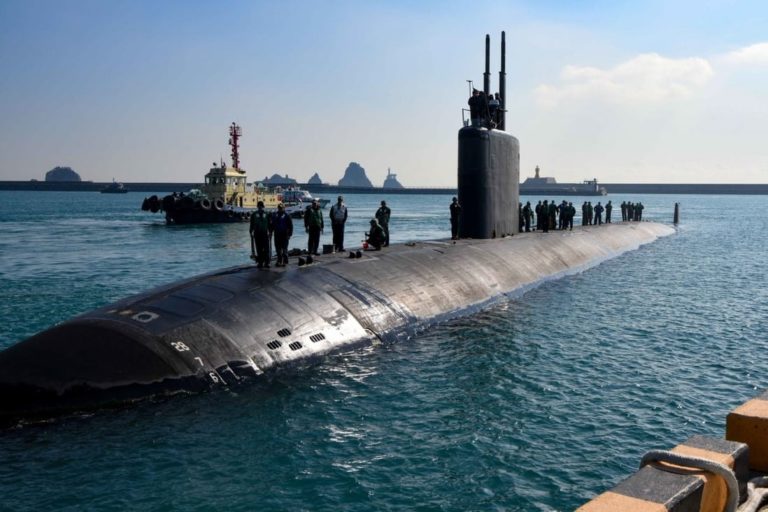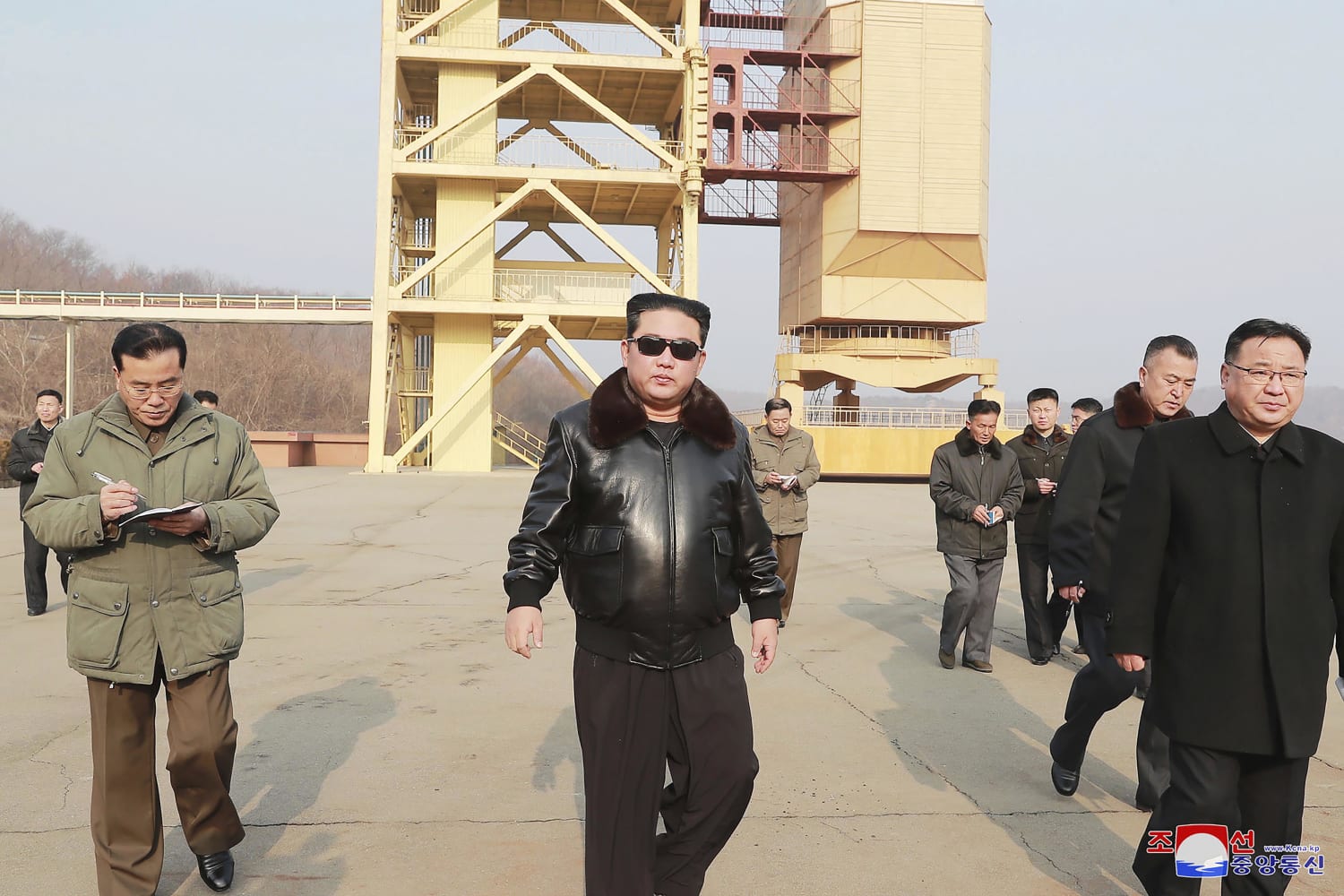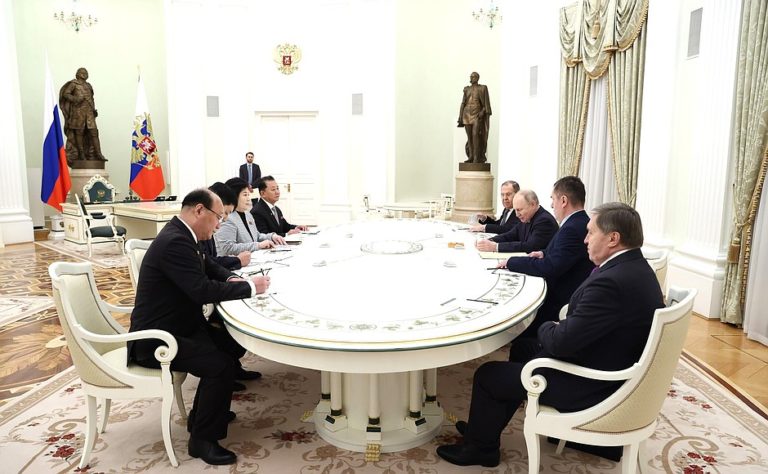By Felix Abt - March 30, 2023 0

Friendly gesture: Felix Abt and his wife (sitting on the ground) are spontaneously invited for beer and snacks by North Koreans in a park on a holiday. [Source: Photo courtesy of Felix Abt]
In advance of a webinar hosted by the Canadian chapter of the Universal Peace Federation (UPF), which describes itself as a global network of peacemakers, to which I was invited to speak in February 2023, I was asked four important questions. The mainstream media would not ask me such questions. Is there something wrong with my answers or with these media? I share my replies with you and leave you to judge.
1. UPF: How did the ongoing changes with regards to the DPRK’s relationship with the West impact your ability to do business there?
FA: When I settled in North Korea (a.k.a. Democratic People’s Republic or DPRK), there was a spirit of optimism there, even a slight euphoria among some, which could also be felt on the other side of the demilitarized zone, in South Korea. The will to reform was clearly noticeable. Although an interesting experiment had already been taking place in Rason on the Chinese border since the 1990s, modeled on Chinese industrial zones and even allowing South Korean companies to set up factories there, this newly perceived drive was to turn into a nationwide upheaval.

Factories in Rason special economic zone. [Source: ncnk.org]

From left to right: the chairman of the Rason Special Economic Zone as well as Susan Kim, Korean-American scholar who conducted business training courses for North Korean executives in Rason, and Felix Abt [Source: Photo courtesy of Felix Abt]
So the first few years required a lot of persuasion, mutual learning and experimentation with new business approaches. Although difficult, it was ultimately rewarding for my North Korean business stakeholders, such as clients and suppliers, as well as for the authorities, my staff, and myself, as we were able to produce some fruitful outcomes. I’ll give you a couple of examples:
On behalf of European mining equipment producers, I was able to sell equipment to mines that enhanced productivity while improving worker safety and significantly reducing the likelihood of accidents. Or in a drug factory I oversaw, my staff and I became the first pharmaceutical company in North Korea to achieve the WHO-certified international standard of “Good Manufacturing Practice,” which also allowed us to take part in international tenders and outbid foreign rivals for contracts. Producing a wide range of quality medicines at affordable prices made us all happy, as the lives of many patients could be saved.
2. UPF: How do the existing sanctions impact business activity in DPRK?
FA: To demonstrate the effect, allow me to go on with the previous example: The pharmaceutical company occasionally requires replacement parts and even new equipment, both of which can only be purchased abroad with hard currency, which the nation must earn through the export of goods like clothing, fish, coal, metals and minerals. However, since sanctions [by Washington] have made it illegal to export these goods, earning hard currency is no longer possible, at least not legally. In addition, the factory requires a functioning microbiology lab to identify contamination in raw materials and finished goods, just like all pharmaceutical and food processing facilities in North Korea. Sanctions also prohibit the use of such apparatus and consumables, such as reagents. As a result, North Korea is the only country in the world where drug and food manufacturers are unable to guarantee the safety of their products for consumers.
3. UPF: How does the current situation impact personal safety?
FA: When I lived there and later when I visited the country, I always felt safe. Of course, anyone who goes there trying to play James Bond and attempting to recruit spies, or obtain a political trophy by removing a government poster from a hotel floor that is off-limits to the public, insult politicians, or attempt to “liberate” North Koreans will run afoul of the law. However, not many people are foolish enough to do this, and when they are, they are typically sent on the following flight out of the country.
4. UPF: If you had to advise Western political leadership on how to relate to DPRK, what do you consider the most important point to explain to them?
FA: I would strive to convince them that increasing pressure will not make the nation give up its nuclear missiles; on the contrary, it considers them essential for survival. Moreover, the country has achieved remarkable self-sufficiency, so the pressure is pointless. Imagine that my home country, Switzerland, is as mountainous as North Korea and has as little arable land, 17%, as North Korea, but must import most of its food. North Korea had already started a massive land reclamation campaign in the 1990s to increase its agricultural production. In Asia, where rice is the staple food, it is also the only country that has carried out an incredible “potato revolution” and now produces huge quantities of potatoes, which, unlike rice, thrive in mountainous areas, and has bred millions of goats, which, unlike cows, can live in mountainous regions that are difficult to access. These goats now produce a lot of meat, milk, yogurt and cheese.

North Korean goat farmers in the mountainous countryside making goat milk yogurt in the early 2000s. [Source: Photo courtesy of Felix Abt]

North Korean farmers harvesting potatoes in Yanggang Province. [Source: Photo courtesy of Rodong Sinmun]

Within just ten years of the start of the cultivation campaign, the area under cultivation grew to 200,000 hectares, and potato consumption rose to 60 kg per capita. Improved quality of potato seed and seed production, as well as cultivation methods such as pest control and appropriate use of fertilizers, and new storage methods contributed to this success. Even the noodles in North Korea’s famous cold noodle soup are made from domestic potato starch. And North Korean restaurants have added several new potato dishes to their menus, as this poster from a restaurant in Pyongyang shows. [Source: Photo courtesy of Felix Abt]
Finally, as we have already seen, engagement is effective, and I would also urge the politicians to reach a compromise that takes into account North Korea’s security needs. I am confident that this would result in a reduction in tension, a peace agreement and the normalization of relations between the conflicting parties. Additionally, it is a necessary condition for the unification of the two Koreas.
A few impressions

[Source: Photo courtesy of Felix Abt]

[Source: Photo courtesy of Felix Abt]
.

At a company outing with North Korean employees. [Source: Photo courtesy of Felix Abt]

[Source: Photo courtesy of Felix Abt]

Together with North Korean executives of the company headed by Felix Abt during a business visit to Shanghai. [Source: Photo courtesy of Felix Abt]
https://covertactionmagazine.com/2023/0 ... f-country/
**********
Songun politics in North Korea
March 30, 5:45 p.m
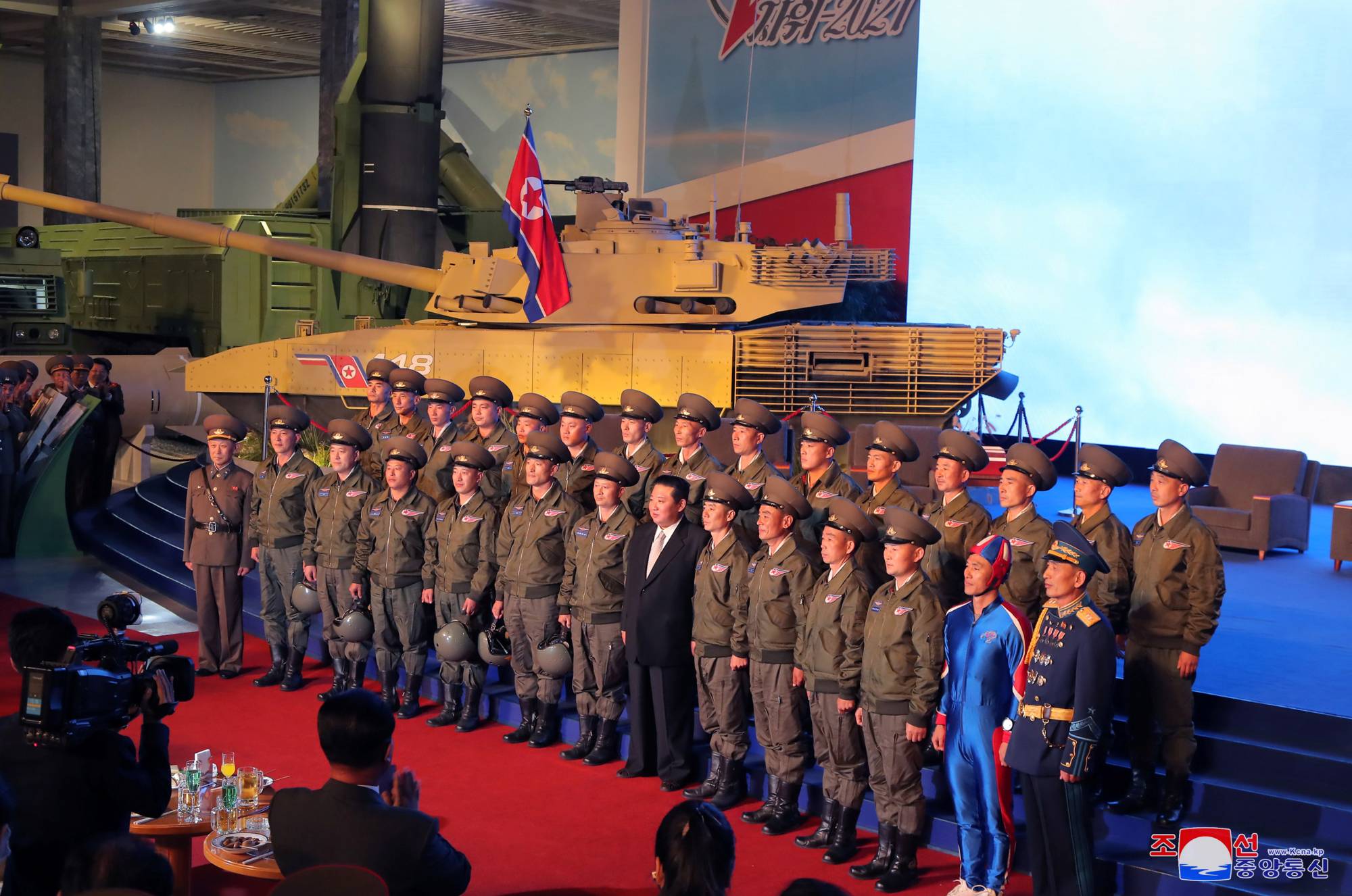
Songun politics in North Korea
In the spiritual life of mankind there is only one sphere of knowledge, which has never been subjected to persecution, oblivion, misrepresentation, all the rulers have always diligently treated it. This sphere remains free from national, racial, religious prejudices in the sense that scientific conclusions and useful observations in it instantly become desirable for representatives of all states and nations. In many ways, this field of knowledge pushed scientific and technological progress forward, forcing all private and engineering sciences to work in an extremely applied mode, and often in a short time.
This is the sphere of military science, the theory of the most effective use of organized and maximally technological violence. For many thousands of years the art of war has been the most important of the arts. War is one of the most ancient forms of labor.
The fact is that military science is a theoretical reflection of military practice, generalizing positive and negative results with the sole purpose of finding an answer to the question of how to win in general and how to win in given specific conditions. Since, firstly, those interested in finding an answer to this question were not concerned with spiritualization or deceit, but with honest, conscientious research, and secondly, lies and mistakes in matters of strategy led to sad consequences, including for the strategists themselves, insofar as in the military science has always had less speculation, fog, empty speculation than in any other theory. In general, it so happened that in the intellectual, theoretical sphere of society, the subjects of this activity, as a rule, have a lack of responsibility. Theologian, philosopher, physicist, chemist, biologist, an astronomer, political scientist, economist, teacher can carry any nonsense without fear that society can hold them accountable for lies, falsifications and mistakes, and without fear that the fruits of their unscrupulous work will come back to haunt them. Military theorists pay for their mistakes with bitter defeats of their states. They can be compared, perhaps, only with the theorists of medicine, who, however, compensate for their high responsibility with increased caution.
In short, military thought remains one of the most conscientious disciplines, avoiding at least self-deception.
The army plays a key role in the state system and therefore occupies a special place in society. It is easy to see that the form of social relations in the army always strives to be as efficient as possible in terms of the tasks being performed. If we imagine that the army is a process of producing military potential and military action, then it is always ultimately aimed at the result. Unlike agriculture, industry, education, culture, and even medicine, there is no place in the army for far-fetched values, feelings, emotions, fashion, frivolity, and a lot of marriage. At least after the army entered the period of hostilities.
War is a kind of politics that seeks to absorb the entire political life of society, because it is the extreme, violent, ultimate manifestation of struggle. And politics is nothing but a struggle. If mankind were homogeneous, were in the same geographical and socio-cultural conditions, there would be no prerequisites for struggle, then there would be no politics, no state and no wars. War is actually a measure of the potentials of competing states.
Liberals like to compare countries by GDP and other economic indicators, they like to measure them by comfort and standard of living, thus assuming their value and potential. In harsh reality, the potential of states is the estimated ability of them to conduct a full-scale war for survival. Therefore, for example, the potential of miniature Cuba, North Korea and Belarus is relatively high, their voice in world politics is more significant than, for example, wealthy Denmark or Norway. In order to capture and subjugate the former, it will be necessary to mobilize significant forces, despite the small size of these countries, while the latter are themselves happy to submit to a strong, large state.
Any war from a social point of view consists of two components - a civilian "rear" and an army. The rear provides the potential of the army, and the army realizes it in battles. That is why the army as a social entity, as a special and isolated part of society, often becomes, firstly, a significant domestic political factor (this historically applies to Russia to a lesser extent, our officers and soldiers were not able to realize their avant-garde role in domestic politics: you can recall 1612, Arakcheevshchina, 1825, the Kornilov rebellion and the “white movement” in general), and secondly, the arena for the formation and implementation of various innovations, including social ones. For example, Suvorov's theory of the national army in his military doctrine is the forerunner of what is now called civil society. In general, Suvorov was an amazingly progressive person in his views on society for his era, because all his thoughts were about one thing: how to organize a team of people in such a way that it works as a single, harmonious organism. The Soviet military doctrine, developed by Frunze and considered a breakthrough for its time, inherited the main developments of Suvorov.
It is also easy to see that military-led schools and universities produce much less pedagogical marriage than civilian ones. And you can also remember how many outstanding and great scientists, writers, poets, politicians were somehow connected with the army.
In short, the army as a form of collective and military service as a form of social relations are distinguished by increased efficiency and more rational content. This is due primarily to the factors of discipline, unity of command and the minimal role of commodity-money relations. Where the market dominates, competition, private interests, elements and individualism prevail, which hinders the formation of a capable team and partnership. In the army, on the contrary, we need collectivism and ideology, patriotism. The soldier and officer are connected with the Motherland and the people not by contract, as with a hired worker, but by public duty and oath.
Many people who have experienced military life will say that the impression of any army in the world is just the opposite. Nowhere is there such stupidity, impenetrable denseness and bureaucratic idiocy as in the army. What kind of rationality can we talk about in this case? On the one hand, due to the specific position of the army in society, all its shortcomings really always look deliberate. On the other hand, the particular and the general should not be confused. There may be a lot of shortcomings in the private, but the essence of the army lies in the role and mission that it plays at the sharp turns of history. No perfectly well-functioning, beautiful bureaucratic structure that provides excellent services can give rise to such phenomena as military fraternity, mass feat and self-sacrifice.
If we look at the military history of mankind in recent centuries, we will see that the army is the stronger, the more firmly it is connected with the people and the better they understand the tasks it performs. Some countries, including the DPRK, which will be discussed below, called their armies "people's". The term "people's army" usually implies, firstly, an army born in a civil, liberation or revolutionary war, and secondly, formed by a general conscription. The United States and Europe in the 20th century actively imposed on the world their doctrine of a contract army, a professional, compact, high-tech, de-ideologized army. The physiognomy of such an army was wonderfully portrayed by the American journalist Wright in the book “Generation of Killers”, which was filmed by HBO. This is a new reading of the feudal-European practice of military mercenarism.
In general, observation of Western armies shows that in the psychology of a professional military in the United States, Britain, France, etc. it is not conviction or patriotism that dominates, but sports passion. The Ministry of Defense of France on its propaganda posters places the following slogan under the figure of a brave warrior: “I crave adventure. For those who yearn for freedom. Like, stop wiping your pants in offices and complaining about a mortgage, aid, safari about blacks.
A peculiar theory of the army and the militarization of society was implemented in the DPRK. The conditions for the existence of this country have always been quite harsh, but after the collapse of the USSR and the socialist camp, the Jucheists rethought the principles of the country's defense capability, raising the importance of the army in the life of society to an unprecedented, Spartan level. Songun is the policy of the DPRK, which proclaims the priority of the army, so this word is translated.
According to Western sources, after the death of his father, Kim Jong Il, in order to stay in power, turned the whole country into a military camp and threatens the free world and good southerners. Songun is the most rabid ultra-militarism. Approximately the same thing is written in our academic environment, only without exaggeration.
If you read North Korean literature itself, you can find out the following. First, songun is not some kind of philosophy or a separate line of thought, but a politics determined by external circumstances, or, as the Koreans themselves say, a political art. However, Songun did bring some changes to the theory of society. Secondly, Songun politics covers not so much the problems of the army as the structure and nature of the state as a whole and the specifics of its impact on society. It can be said that Songun is something like the militarization of the state and society, but not in conditions of war, but in conditions of its direct danger.
To speculate that Kim Jong Il retained or consolidated power after his father's death through the advancement of the Songun doctrine would be speculation. We do not know anything about any opposition within the DPRK, about any struggle within the WPK, etc. At least the Juche sources themselves say that in 1994, when the Songun doctrine was put forward, the country was in a very difficult conditions, and from the new leader in the person of Kim Jong Il, everyone was waiting for the manifestation of "the extraordinary power of political art." Songun became something of a symbol of the succession of chiefs, as the rationale behind the policy—the force of arms decides—was actively promoted and implemented by Kim Il Sung.
The main reason for the advancement of Songun ideas was ... the collapse of the USSR and the socialist camp. In the North of Korea, this was perceived as the deepest political crisis, the essence of which is that now they are virtually alone against US imperialism.
Not without a grain of truth, the North Koreans believe that the entire political history of the United States is deeply imbued with imperialism. The Americans, after defeating the enemy, establish control over countries and regions as a metropolis. The first American empire was formed after the victory over Spain at the end of the 19th century, which resulted in the transformation of Cuba, Puerto Rico and the Philippines into the backyard of the United States. The second American empire was formed after the Second World War, when the NATO bloc was created, and Europe became dependent on the United States. This was the period of the Cold War, when the American empire was opposed by the "camp of socialism" led by the USSR. After the collapse of the USSR and the socialist countries in Eastern Europe, a third American empire was formed, which expanded its sphere of influence not only in Europe, but also in the Middle East. In 1996, the New York Times shamelessly wrote,
The Korean Peninsula has been of interest to the United States since the beginning of the Cold War. In the global strategy, it has the significance of a stronghold that opens the door to the land borders of Russia and China and, in general, to the mainland. South Korea, created and existing thanks to American support and weapons, is not capable of fulfilling the role of such a stronghold purely geographically and in this respect differs little from the Japanese islands. The Australia-Japan-South Korea "Axis" is for the US a stronghold of influence in the Asia-Pacific region.
After the collapse of the USSR, the liquidation of the police department, and later the death of Kim Il Sung, hopes arose in the United States that the new leader would either not stay in power or be forced to change course to a more loyal one. In the early to mid-1990s, the United States increased pressure on the DPRK in this regard. The answer to the complexity of the new situation was the proclamation of Songun. Songun became an alternative to the Chinese, Vietnamese and Cuban ways to overcome the crisis of the collapse of the USSR. Instead of Chinese cunning, Vietnamese compliance and Cuban patience - Korean obstinacy.
The starting point of the Songun doctrine is that the fate of the country and the nation depends on military affairs. This is entirely a conclusion from the current situation and the threat from the United States. “The line of the Songun revolution, Songun politics,” wrote Kim Jong Il, “is a scientifically based revolutionary line and way of doing politics, since it most accurately reflects the dictates of the times and the revolution. Our Party has developed the policy of Songun based on the scientific analysis of the international situation around our revolution and the trend of the rapidly changing situation."
The scientific development was that the only way to prevent an attack by the United States was the military mobilization of society. But something else is interesting here - that songun became the policy of the state in all areas and was declared a means of social construction in general. Moreover, the Songun doctrine mediates the entire political theory in this sense.
Kim Jong Il writes that the army must become a new social entity, the core force of the masses, because ... the working class is no longer the same. This means that the workers, due to the intellectualization of labor, have become almost intellectuals, there is no former discipline, intuition and class training. But at the same time, external hostile forces increase pressure, which automatically increases the importance of the armed forces. From this it was concluded that the army should be made "the main driving force of the revolution", and it would act in the "spirit of the traditions of the working class."
“Now we say: a gun over a hammer and a sickle,” Kim Jong Il.
In practical terms, songun means three things.
Firstly, that in any issue of national importance, priority is given to military affairs, this issue itself is considered from the point of view of the country's defense capability. Whether it's education, medicine, or the centralized selection of songs in kindergarten.
Secondly, the entire society and the apparatus of the state should be guided by the spirit of the Songun, that is, show army discipline, training, unity of command, selflessness, devotion to the party and leader in work and life.
Thirdly, that the army is widely involved in solving civilian, peaceful tasks, and the country, in turn, is turning into a rear for the army. All this together guarantees the sovereignty and development of the country.
Speaking directly about the army, from the Songun point of view, a soldier and officer turns into a revolutionary, not only a defender of the Fatherland, but also a builder of a new society. All the best goes to the military, everything is for the army, because the army solves all the main tasks of the state.
If you rely solely on facts, then the “Songun era” looks good. North Korea has not yet been bombed, like Iraq and Libya, it has become a space and nuclear power, survived the pandemic, etc.
Songun became a new state-legal system. The State Defense Committee (GKO) in terms of legal status, composition, duties and powers has become higher than the Government, the Presidium of the Supreme People's Assembly, local authorities, police and prosecutors. The State Defense Committee became the main body of power in the country on a par with the VNS. The chairman of the GKO is the highest position in the state: he leads all spheres of politics, military affairs and the economy of the country.
But at the same time, the militarization of the state apparatus in Songun is denied, that is, the civil authorities continue to work in the same composition and with the same order of recruitment, only giving priority to military affairs and working "in the spirit of Songun."
Thus, it seems that the Jucheists are trying all the best that military collectivism and unity of command presupposes to apply in the civilian sphere and to society as a whole.
As for defense capability, it should be noted that the North Korean principle of ensuring it is that aggressor empires unleash wars at a time when tensions are on the wane, so the armed forces must be strengthened even at moments of seemingly mitigating the situation.
In general, a brief introduction to Songun gives food for thought. Some of the provisions of Songun seem to be quite relevant in modern times.
By the way, we can recall the successful experience of the economic construction of the Russian army. Who rescued the Motherland at a difficult moment of the pandemic by building 16 first-class medical centers? Gazprom? Rosneft? Sberbank? Unions? People on the Forbes list? Stars, bloggers or patrons? No, the army did it. The army of the Russian Federation turned out to be more effective than all state-owned companies, effective managers and socially responsible entrepreneurs, because it is much less permeated with commercial relations. Back in 2009, V. Putin withdrew military construction from the commercial sector, which helped at a difficult moment not to confuse the needs of society and the state with profit.
Now, in the course of the NMD, the army is transforming, learning, gaining experience, acquiring a higher significance in society and a new historical image. The international situation is escalating, and the role of the country's defense capability will inevitably grow, so it will not be superfluous to rethink the place of the armed forces in the structure of society.
(c) Anatoly Shirokoborodov
https://alternatio.org/articles/article ... gun-v-kndr - zinc
https://colonelcassad.livejournal.com/8262934.html
Google Translator
